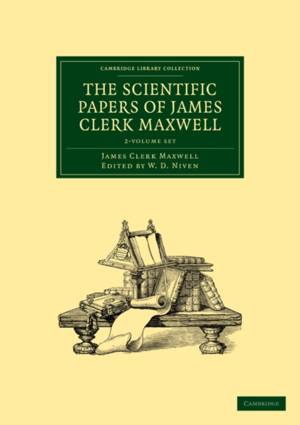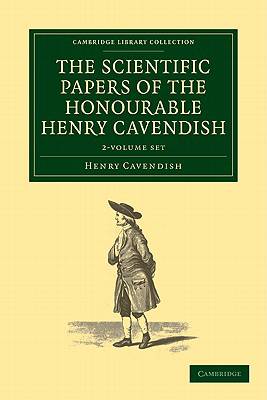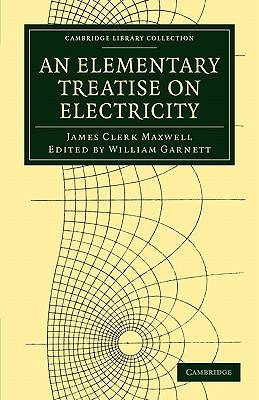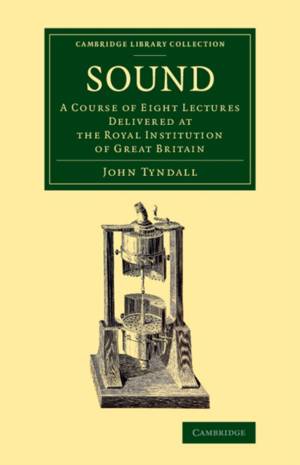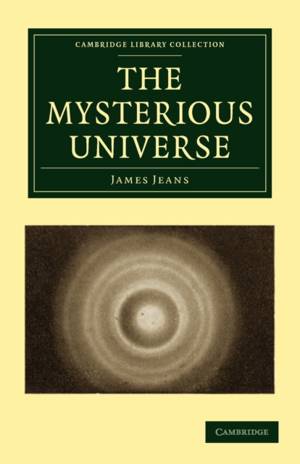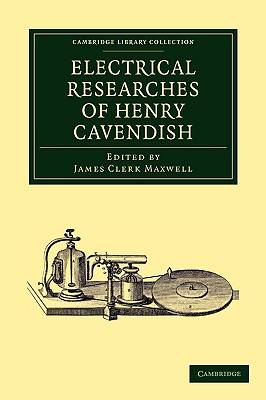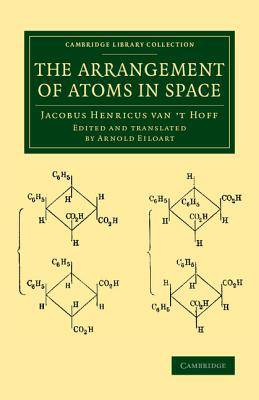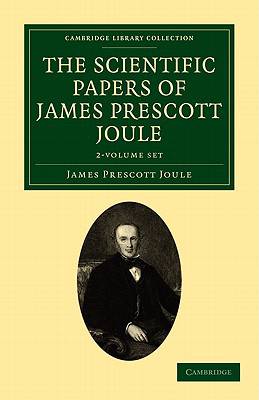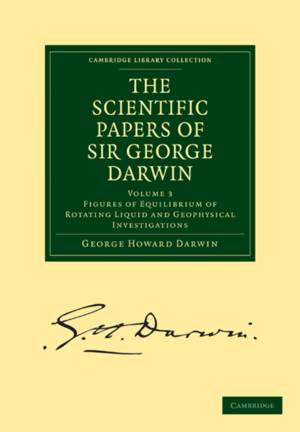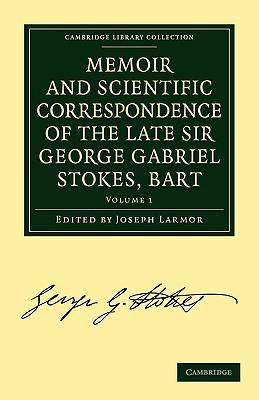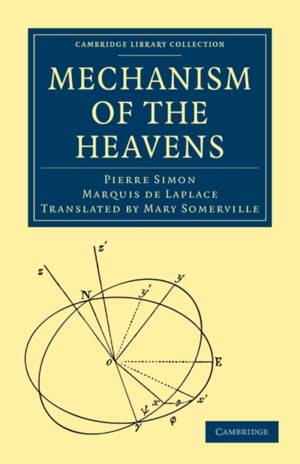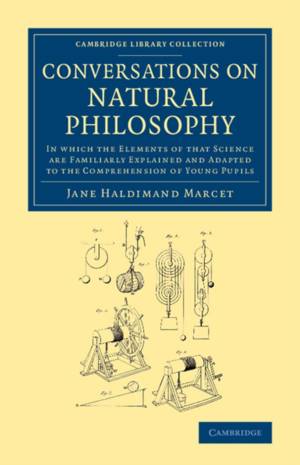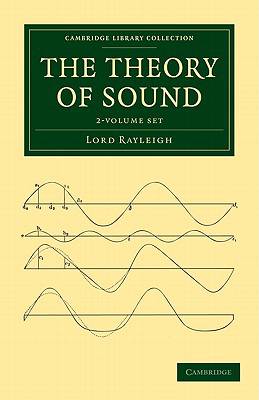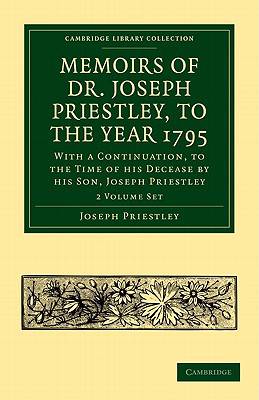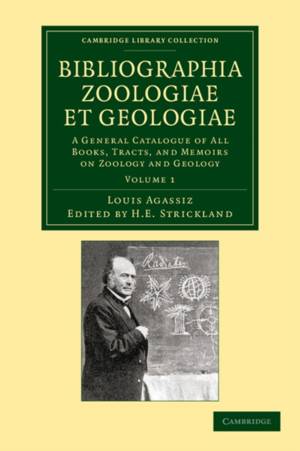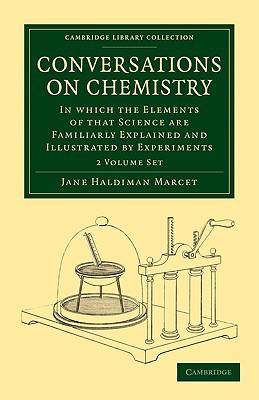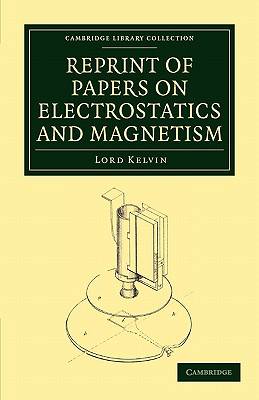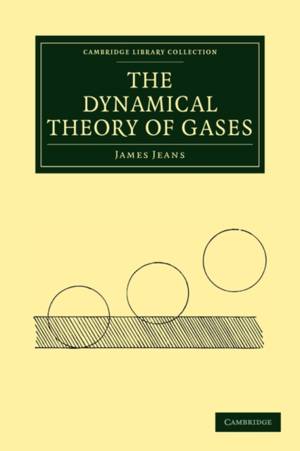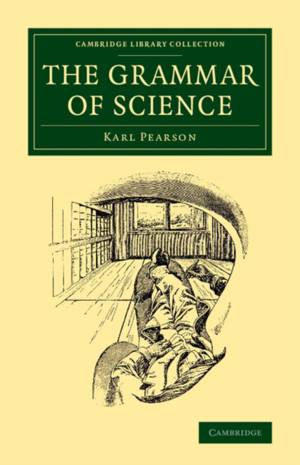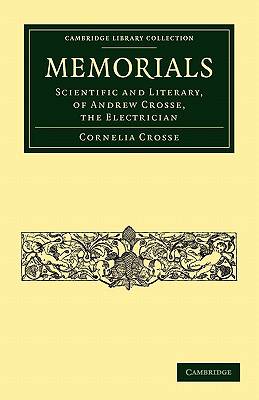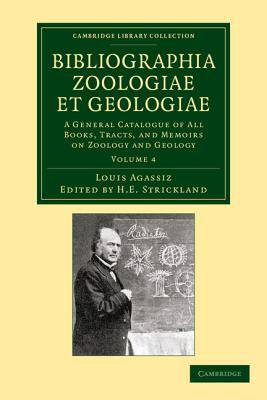
- Retrait gratuit dans votre magasin Club
- 7.000.000 titres dans notre catalogue
- Payer en toute sécurité
- Toujours un magasin près de chez vous
- Retrait gratuit dans votre magasin Club
- 7.000.0000 titres dans notre catalogue
- Payer en toute sécurité
- Toujours un magasin près de chez vous
Résultats pour "Cambridge Library Collection - Physical Sciences"
-
The Scientific Papers of James Clerk Maxwell 2 Volume Paperback Set
James Clerk Maxwell
- Livre | Anglais | Cambridge Library Collection - Physical Sciences
- The publication in 1890 of the two-volume Scientific Papers of James Clerk Maxwell, edited by W. D. Niven, was one of the two objects of a committee f... Savoir plus
143,95 €Livraison 1 à 2 semaines143,95 €Livraison 1 à 2 semaines -
The Scientific Papers of the Honourable Henry Cavendish, F. R. S. 2 Volume Set
Henry Cavendish
- Livre | Anglais | Cambridge Library Collection - Physical Sciences
- Henry Cavendish (1731-1810) was an English scientist whose published work was mostly concerned with electricity. He was elected a Fellow of the Royal ... Savoir plus
93,95 €Livraison sous 1 à 4 semaines93,95 €Livraison sous 1 à 4 semaines -
An Elementary Treatise on Electricity
James Clerk Maxwell
- Livre broché | Anglais | Cambridge Library Collection - Physical Sciences
- James Clerk Maxwell (1831-1879), first Cavendish Professor of Physics at Cambridge, made major contributions to many areas of theoretical physics and ... Savoir plus
61,45 €Livraison 2 à 3 semaines61,45 €Livraison 2 à 3 semaines -
Sound
John Tyndall
- Livre broché | Anglais | Cambridge Library Collection - Physical Sciences
- Professor of natural philosophy at the Royal Institution between 1853 and 1887, the British physicist and mountaineer John Tyndall (1820-93) passionat... Savoir plus
86,95 €Livraison 2 à 3 semaines86,95 €Livraison 2 à 3 semaines -
The Home Life of Sir David Brewster
Margaret Maria Gordon, Gordon Margaret Maria
- Livre broché | Anglais | Cambridge Library Collection - Physical Sciences
- The Home Life of Sir David Brewster, originally published in 1869, records the remarkable life of inventor, physicist, mathematician and astronomer, S... Savoir plus
95,45 €Livraison 2 à 3 semaines95,45 €Livraison 2 à 3 semaines -
The Mysterious Universe
James Jeans, Jeans James
- Livre broché | Anglais | Cambridge Library Collection - Physical Sciences
- Originating from the Rede Lecture delivered at the University of Cambridge in November 1930, this book is based upon the conviction that the teachings... Savoir plus
29,45 €Livraison 1 à 2 semaines29,45 €Livraison 1 à 2 semaines -
Electrical Researches of Henry Cavendish
Henry Cavendish
- Livre broché | Anglais | Cambridge Library Collection - Physical Sciences
- Henry Cavendish (1731-1810), the grandson of the second duke of Devonshire, wrote papers on electrical topics for the Royal Society, but the majority ... Savoir plus
50,45 €Livraison 1 à 2 semaines50,45 €Livraison 1 à 2 semaines -
The Arrangement of Atoms in Space
Jacobus Henricus Van 't Hoff
- Livre broché | Anglais | Cambridge Library Collection - Physical Sciences
- Awarded the first Nobel Prize in Chemistry in 1901 for his work on chemical dynamics and on osmotic pressure in solutions, the Dutch scientist Jacobus... Savoir plus
57,95 €Livraison 2 à 3 semaines57,95 €Livraison 2 à 3 semaines -
The Scientific Papers of James Prescott Joule 2 Volume Set
James Prescott Joule
- Livre | Anglais | Cambridge Library Collection - Physical Sciences
- Sir James Prescott Joule (1818-1889) became one of the most significant physicists of the nineteenth century, although his original interest in scienc... Savoir plus
106,45 €Livraison 1 à 2 semaines106,45 €Livraison 1 à 2 semaines -
Popular Lectures and Addresses - 3 Volume Set
William Thomson
- Livre broché | Anglais | Cambridge Library Collection - Physical Sciences
- William Thomson, Baron Kelvin (1824-1907), was educated at Glasgow and Cambridge. While only in his twenties, he was awarded the University of Glasgow... Savoir plus
136,95 €Livraison sous 1 à 4 semaines136,95 €Livraison sous 1 à 4 semaines -
The Scientific Papers of Sir George Darwin
George Howard Darwin
- Livre broché | Anglais | Cambridge Library Collection - Physical Sciences
- Sir George Darwin (1845-1912) was the second son and fifth child of Charles Darwin. After studying mathematics at Cambridge he read for the Bar, but s... Savoir plus
50,45 €Livraison 1 à 2 semaines50,45 €Livraison 1 à 2 semaines -
Memoir and Scientific Correspondence of the Late Sir George Gabriel Stokes - Volume 1
George Gabriel Stokes, Stokes George Gabriel
- Livre broché | Anglais | Cambridge Library Collection - Physical Sciences
- Lucasian Professor of Mathematics at Cambridge and President of the Royal Society, Sir George Gabriel Stokes (1819-1904) made substantial contribution... Savoir plus
50,45 €Livraison 1 à 2 semaines50,45 €Livraison 1 à 2 semaines -
Mechanism of the Heavens
Mary Somerville, Pierre Simon Laplace
- Livre broché | Anglais | Cambridge Library Collection - Physical Sciences
- Published in 1831, this work forms part of a collection of introductory volumes suggested by Henry, Lord Brougham and Vaux, the Lord Chancellor, for t... Savoir plus
65,95 €Livraison 1 à 2 semaines65,95 €Livraison 1 à 2 semaines -
Conversations on Natural Philosophy
Jane Haldimand Marcet
- Livre broché | Anglais | Cambridge Library Collection - Physical Sciences
- An author of educational works intended especially for young women, Jane Haldimand Marcet (1769-1858) sought to combat the notion that technical topic... Savoir plus
99,95 €Livraison 2 à 3 semaines99,95 €Livraison 2 à 3 semaines -
The Theory of Sound 2 Volume Set
John William Strutt
- Livre | Anglais | Cambridge Library Collection - Physical Sciences
- John William Strutt, third Baron Rayleigh (1842-1919) was an English physicist best known as the co-discoverer of the element argon, for which he rece... Savoir plus
75,45 €Livraison 1 à 2 semaines75,45 €Livraison 1 à 2 semaines -
Baltimore Lectures on Molecular Dynamics and the Wave Theory of Light
Baron Kelvin William Thomson, William Baron Thomson
- Livre broché | Anglais | Cambridge Library Collection - Physical Sciences
- The mathematical physicist and engineer William Thomson, 1st Baron Kelvin (1824-1904) is best known for devising the Kelvin scale of absolute temperat... Savoir plus
64,45 €Livraison 1 à 2 semaines64,45 €Livraison 1 à 2 semaines -
Memoirs of Dr. Joseph Priestley 2 Volume Set
Joseph Priestley, Thomas Cooper
- Livre | Anglais | Cambridge Library Collection - Physical Sciences
- Joseph Priestley (1733-1804) was an eighteenth-century English polymath with accomplishments in the fields of science, pedagogy, philosophy, and theol... Savoir plus
90,95 €Livraison 1 à 2 semaines90,95 €Livraison 1 à 2 semaines -
Bibliographia Zoologiae Et Geologiae, Volume 1
Louis Agassiz
- Livre broché | Anglais | Cambridge Library Collection - Physical Sciences
- Born in Switzerland, Louis Agassiz (1807-73) distinguished himself as one of the most capable and industrious naturalists of the nineteenth century, w... Savoir plus
106,45 €Livraison 2 à 3 semaines106,45 €Livraison 2 à 3 semaines -
Conversations on Chemistry 2 Volume Set
Jane Haldimand Marcet
- Livre | Anglais | Cambridge Library Collection - Physical Sciences
- Jane Haldimand Marcet (1769-1858) was a pioneer in the field of education who wrote accessible introductory books on science and economics. Noting tha... Savoir plus
95,95 €Livraison 1 à 2 semaines95,95 €Livraison 1 à 2 semaines -
Reprint of Papers on Electrostatics and Magnetism
William Baron Thomson, Lord Kelvin
- Livre broché | Anglais | Cambridge Library Collection - Physical Sciences
- William Thomson, Baron Kelvin (1824-1907), born with a great talent for mathematics and physics, was educated at Glasgow and Cambridge. While only in ... Savoir plus
120,95 €Livraison 2 à 3 semaines120,95 €Livraison 2 à 3 semaines -
The Dynamical Theory of Gases
James Jeans, Jeans James
- Livre broché | Anglais | Cambridge Library Collection - Physical Sciences
- Jeans's primary aim with the first edition of his book, originally published in 1904, was to 'develop the theory of gases upon as exact a mathematical... Savoir plus
43,45 €Livraison 1 à 2 semaines43,45 €Livraison 1 à 2 semaines -
The Grammar of Science
Karl Pearson
- Livre broché | Anglais | Cambridge Library Collection - Physical Sciences
- First published in 1892, this important work by the mathematician Karl Pearson (1857-1936) presents a thoroughly positivist account of the nature of s... Savoir plus
93,45 €Livraison 2 à 3 semaines93,45 €Livraison 2 à 3 semaines -
Memorials
Cornelia Crosse, Crosse Cornelia
- Livre broché | Anglais | Cambridge Library Collection - Physical Sciences
- These Memorials of Andrew Crosse (1784-1855), published by his wife after his death, include his experiments, and some of his poetry and prose. After ... Savoir plus
86,95 €Livraison 2 à 3 semaines86,95 €Livraison 2 à 3 semaines -
Bibliographia Zoologiae Et Geologiae, Volume 4
Louis Agassiz
- Livre broché | Anglais | Cambridge Library Collection - Physical Sciences
- Born in Switzerland, Louis Agassiz (1807-73) distinguished himself as one of the most capable and industrious naturalists of the nineteenth century, w... Savoir plus
114,45 €Livraison 2 à 3 semaines114,45 €Livraison 2 à 3 semaines





